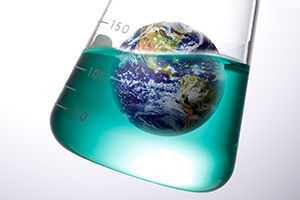Could Environmental Toxins Contribute to ADHD Symptoms?

Frequently, people ask if something in our environment or in our foods could be contributing to the increase in ADHD diagnoses. Are there pollutants that are affecting us or our children? Could food additive, pesticides or herbicides on our foods, be part of the problem? Others wonder if chemicals related to plastics or used in the many cleaners or hygiene products in our homes have had an unintended affect on developing brains.
The answer to all of these is “perhaps.” Research published in respected medical journals has shed new light on a possible link between modern chemicals and ADHD. One, in Pediatrics, reported on organophosphate insecticide residues and metabolites in children’s urine. The other, in the American Journal of Epidemiology, reported on chemicals leaking from materials used in construction, industry, and consumer products (such as polychlorinated biphenols, or PCB) in the cord blood of babies born to mothers living near a contaminated harbor. These two articles were considered important enough to merit an editorial in the prestigious Journal of the American Medical Association.
The results are similar to two other reports released by the National Institute of Environmental Health Sciences, one for insecticide residues in mothers’ serum during pregnancy, the other for polyfluoroalkyl chemicals (PFCs) in children’s serum.
What can you do to minimize possible exposure to chemicals or additives? ADHD researcher L. Eugene Arnold, MD, MEd, first advises families and parents “not to panic.”
“This new knowledge does not change the real risk (or lack of risk) that already exists,” he writes in Do Environmental Toxins Contribute to ADHD Symptoms? for Attention magazine. “It just provides a beginning of finding ways to improve future safety.”
Continue reading Do Environmental Toxins Contribute to ADHD Symptoms? for what you can do now to decrease possible exposure to every day pollutants.
Frequently, people ask if something in our environment or in our foods could be contributing to the increase in ADHD diagnoses. The answer is “maybe.” Researchers are continuing to explore if the chemicals in our daily environments contribute to ADHD symptoms for some people. Keep reading for what they have learned so far.
